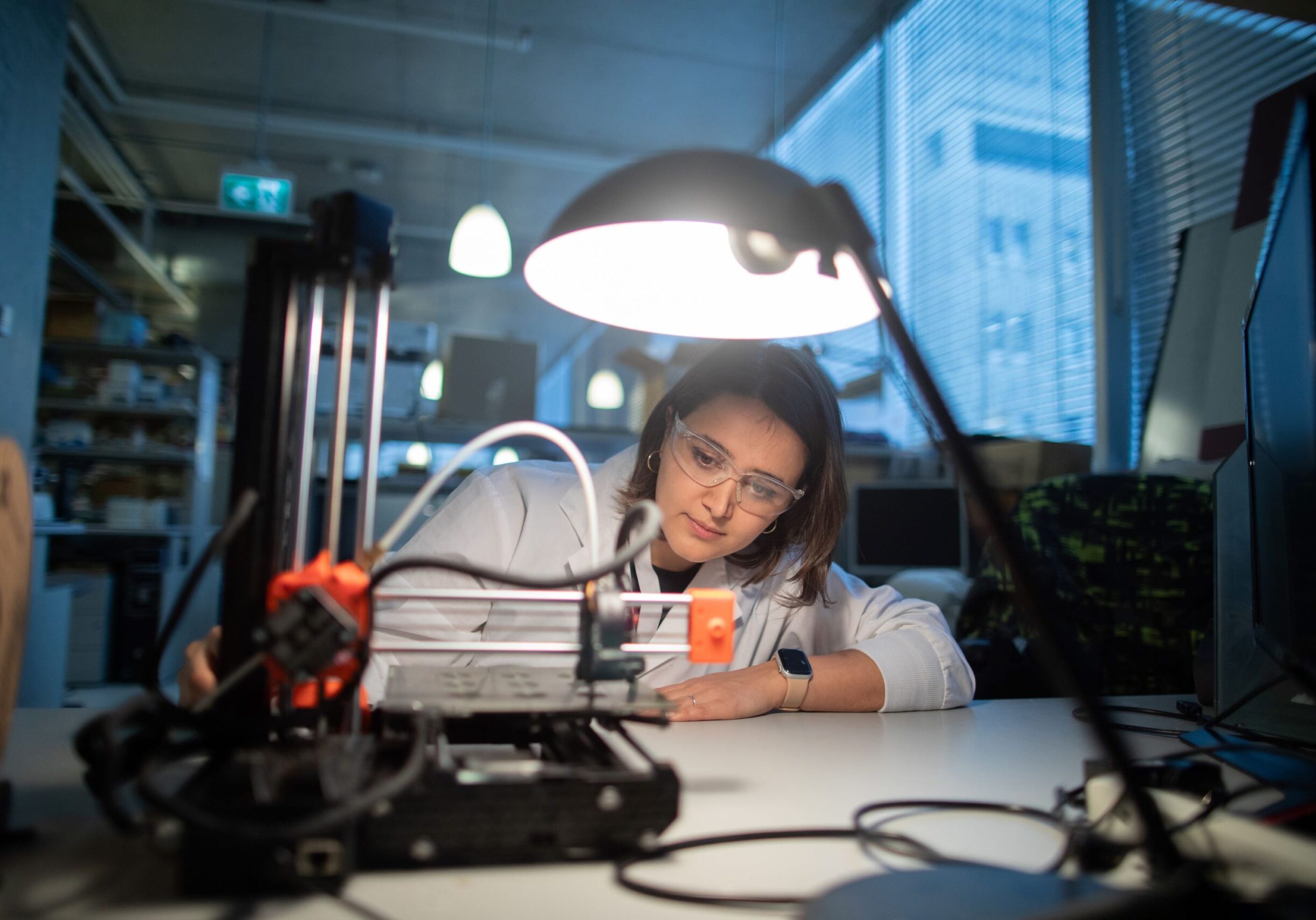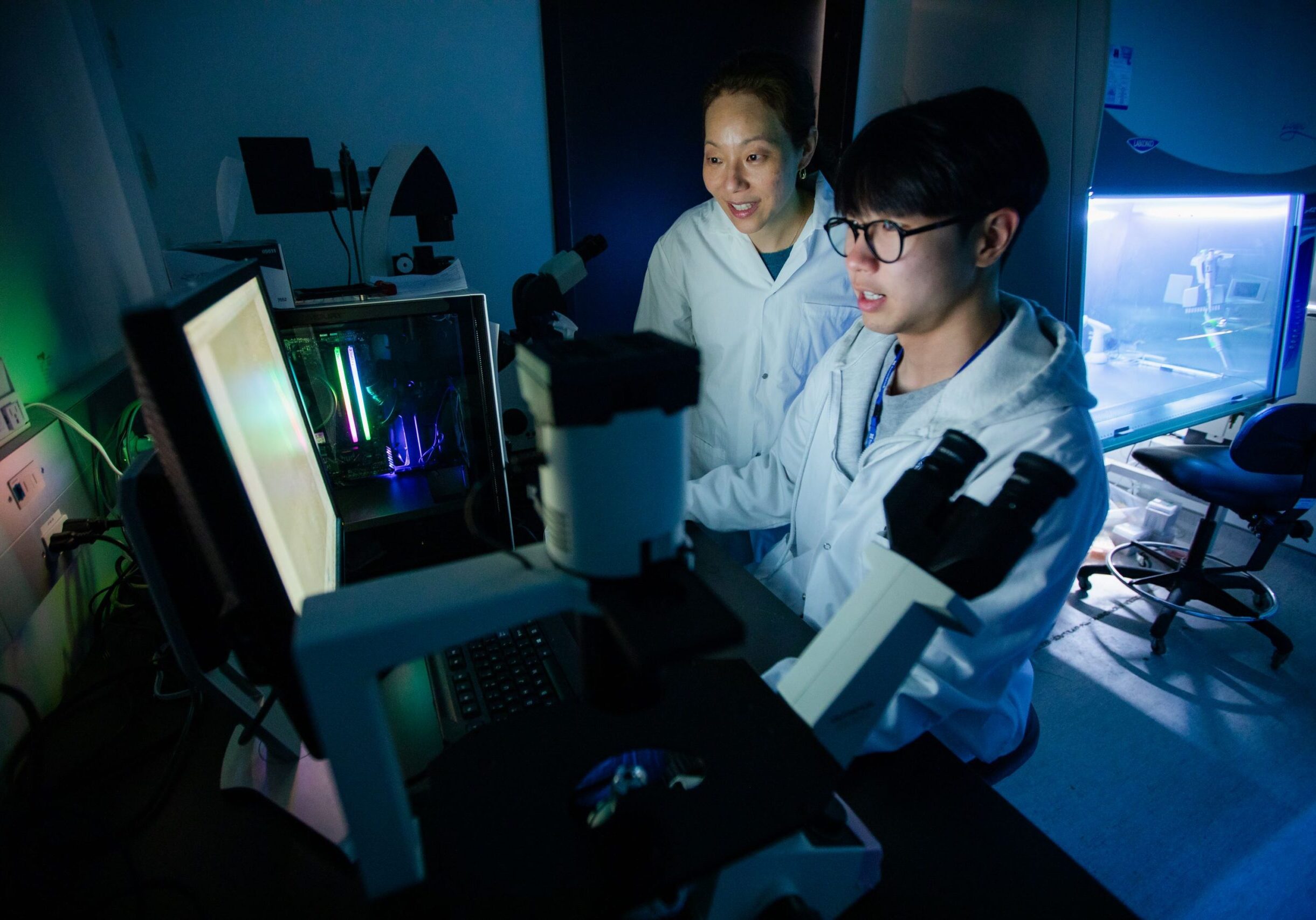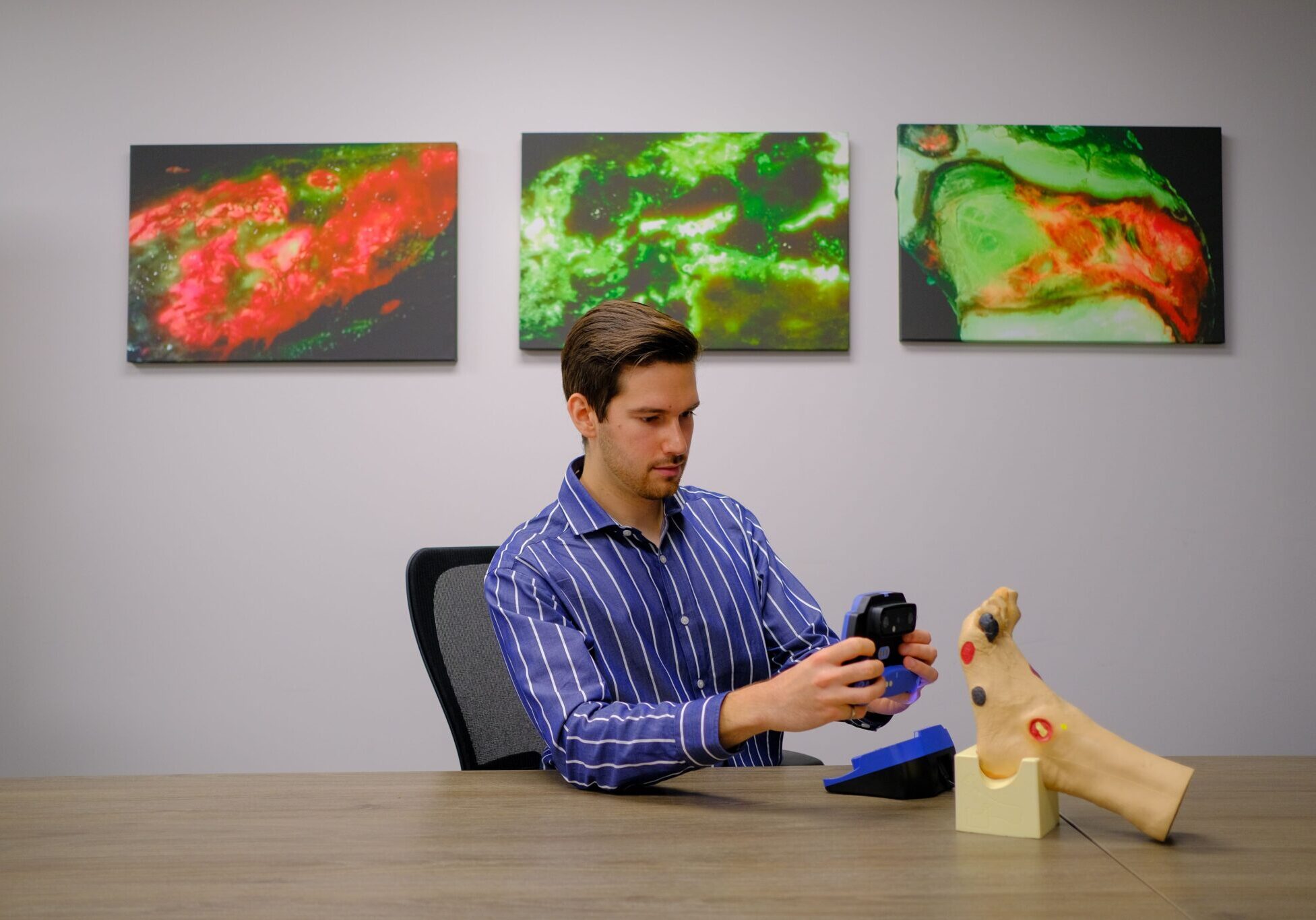Programs Overview
Are you a prospective student? Here at the Institute of Biomedical Engineering (BME), we connect researchers across the University of Toronto and its partner hospitals to develop innovative solutions to improve human health.
At the Institute of Biomedical Engineering (BME), we have 3 graduate programs and 2 undergraduate programs.
Quick Navigation
Graduate programs
Doctor of Philosophy
Research degree that exposes candidates to cutting-edge research in a laboratory
Master of Applied Science
Research degree that exposes candidates to cutting-edge research in a laboratory
Master of Engineering
Professional degree that exposes candidates to biomedical device design to commercialization
Graduate programs comparison
| Stream: | Research | Professional |
|---|---|---|
| Program: | PhD / MASc | MEng |
| Focus: | Research intensive training in a laboratory or clinical setting. | Training in biomedical device design, implementation, and commercialization. |
| Career Interests: | Individuals pursuing careers in academia, healthcare, government, or industry, who have a passion for research and development. • Motivated to conduct cutting-edge research • Passionate about academic collaboration and science communication • Keen on becoming key opinion leaders with distinct research specialization | Individuals interested in medical device production from design to implementation in human patients. • Seeking product design knowledge • Interested in learning entrepreneurship fundamentals • Eagar to gain real-world experience in the healthcare sector |
| Degree(s) Required: | Bachelor of Science, Bachelor of Engineering, Master of Applied Science (for PhD only), or Master of Engineering (PhD only). | Bachelor of Engineering or Bachelor of Science. |
| Outcome: | Program graduates excel as leaders in academia, industry, and government agencies across the globe. | Through work-integrated learning, graduates emerge as company founders, technology leaders, and start-up creators in the healthcare sector. |
| Program Length: | approx. 2 years (for MASc) or approx. 4 years (for PhD) | 1 year |
| Funding: | Unit-funded | Self-funded |
| Curricula: | • Coursework • Committee Meetings • Qualifying/Bypass Exam (for PhD) • Thesis • Defense • Final Oral Exam (for PhD) | • Coursework • Practical Experience |
Undergraduate programs and opportunities
| Year | Description | Opportunities |
|---|---|---|
| 1 | Engineering Science (EngSci) program students learn fundamentals of different science disciplines and begin team-based design training through praxis courses. | |
| 2 | EngSci students continue to receive foundational training through courses including BME205. Students select their major at the end of the second year. | USRA PEY Co-op |
| 3 | Biomedical Engineering major program students deepen their knowledge through rigorous academic and experiential training. | USRA PEY Co-op |
| 4 | Major students may focus on skill advancement and further knowledge and competencies through the completion of specialization courses, thesis, and design/capstone projects. |
| Year | Description | Opportunities |
|---|---|---|
| 1 | Engineering students establish knowledge in math and applied & basic sciences. | |
| 2 | Students expand knowledge and gain a greater depth of understanding through enhanced lab experiences and design opportunities. | USRA PEY Co-op |
| 3 | Bioengineering minor students may elect to pursue specialization courses grouped into three themes: Molecular Engineering, Cell & Tissue Engineering, and Clinical Engineering. | USRA PEY Co-op |
| 4 | Minor students may focus on skill advancement in one of the three themes (mentioned above) toward becoming a specialist in their respective field. |
Read more student news & stories
Quick Navigation
A Discovery of Talent and Drive
A Discovery of Talent and Drive IBBME’s graduate students were in the spotlight at the recent Ontario Centres of Excellence (OCE) Discovery conference, held during the last week of May. […]
Convocation 2013: five U of T health leaders to watch
Convocation 2013: five U of T health leaders to watch As the class of 2013 graduates this June, U of T News looks at some of the students who will be […]
IBBME’s Annual Scientific Day Wows Students, Companies, with Professional Turn
IBBME’s Annual Scientific Day Wows Students, Companies, with Professional Turn The Institute of Biomaterials & Biomedical Engineering (IBBME) lived up to its long-standing spring tradition with this year’s Scientific Day, […]
Medicine Meets MacGyver
Medicine Meets MacGyver A cheap and portable diagnostics device fashioned from your basic laser jet printer and a children’s toy. A look at how every day common foods can help […]
Spreading the Word
Spreading the Word What does a discussion among approximately 140 high school students, volunteers, teachers, and world-leading scientists on the subject of stem cells sound like? Oddly personal, important, and […]
New IBBME-led Company SpineSonics Medical Inc. spins towards commercialization
New IBBME-led Company SpineSonics Medical Inc. spins towards commercialization An Ultrasound navigational probe to aid in spinal surgeries is the driving force behind a new start-up company launched this week […]
Pour, Shake and Stir
Pour, Shake and Stir A diagnostic “cocktail” containing a single drop of blood, a dribble of water, and a dose of DNA powder with gold particles could mean rapid diagnosis […]
Game On!
Game On! A foosball-playing prosthetic forearm prototype – fashioned only from pieces of Lego – was the challenge put forth to teams of competitors by the University of Toronto’s Club […]
Engineering Student Takes Sunnybrook Prize with Biomaterials Discovery
Engineering Student Takes Sunnybrook Prize with Biomaterials Discovery Ben Ouyang, a fourth-year Engineering Science student (Biomedical Engineering option) has been awarded first prize in the Sunnybrook Prize competition. The national […]
- « Previous
- 1
- …
- 13
- 14
- 15


